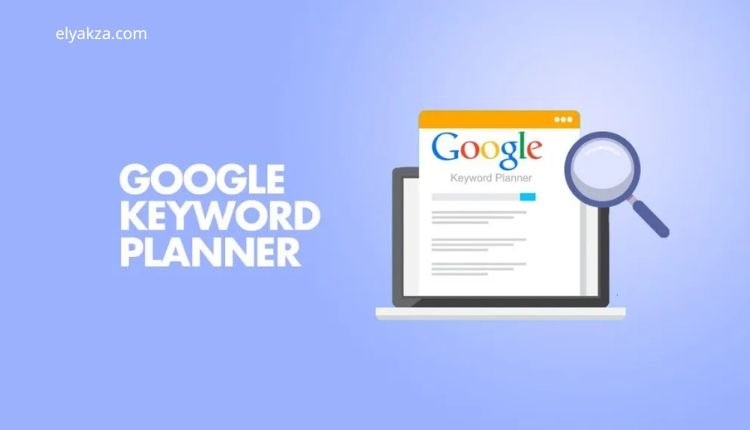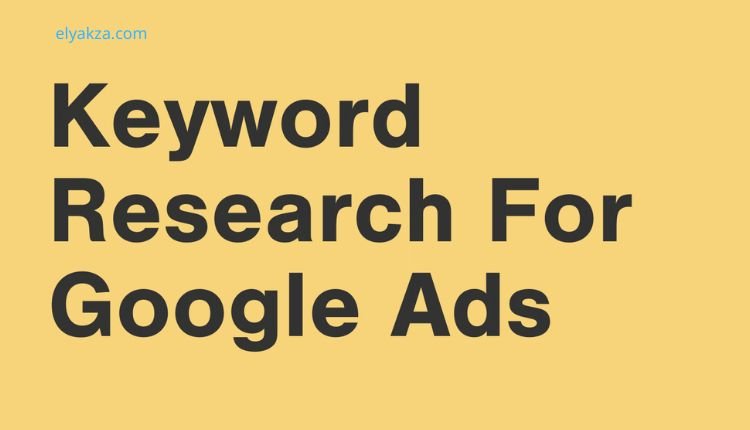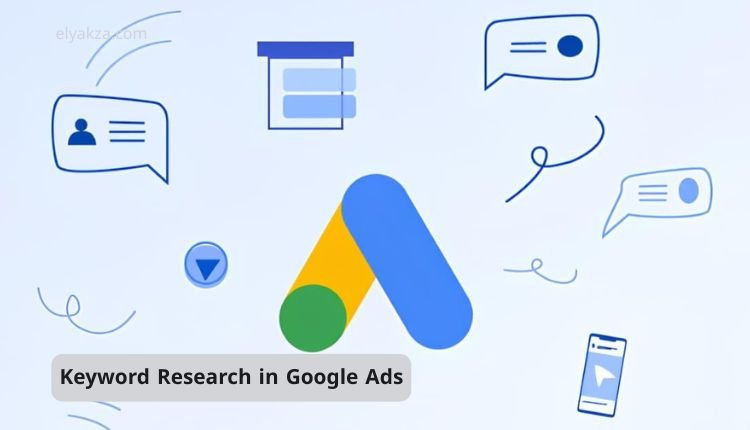With the accelerating pace of change in Google Ads and its increasing reliance on artificial intelligence to handle more and more of the heavy lifting, a fundamental question arises in the minds of advertisers: Has keyword research now become just a waste of time?
قائمة المحتويات
This question itself feels peculiar, especially for those who witnessed the early days of Google Ads. Back in 2009, for instance, keyword research was an incredibly important, arguably the most crucial, part of any successful ad campaign. The keywords you targeted completely determined who your ads were and weren’t shown to, which had a huge impact on the results generated from your Google Ads campaigns.
The platform has evolved significantly over the past 16 years, and the importance of keywords has gradually diminished. While they were still very important five years ago, we’ve seen an acceleration of this process recently. This is because Google has taken on more of the “heavy lifting” in terms of audience targeting, thanks to the flexibility the platform grants advertisers.
When you give Google more flexibility, it can discover new audience segments that might not have been included under previous targeting setups, and which could bring valuable conversions. Does this mean that in-depth keyword research is now a thing of the past? Let’s delve deeper into this question, review the ongoing changes, and anticipate the future.
The Evolution of Google Ads: From Full Control to Automation
Google Ads has undergone a radical transformation towards full automation.
Fully Automated Campaign Types
For some time now, we’ve had fully automated campaign types like Performance Max and Demand Gen, where targeting is largely left to Google. These ads are not confined to the search network; they extend to various display placements.
While keywords are typically thought of as primarily search-based, Google now uses our inputs as advertisers (suggested keywords or targeted audiences) merely as “suggestions.” Google can often disregard these suggestions and work towards achieving the maximum number of conversions or the highest conversion value, depending on the smart bidding strategy we choose.
The Rise of AI Max
With the very recent addition of AI Max, we can now run ads on the search network without the need to input any keywords. Google simply figures it all out for you.
This trend is clear:
- Google aims to reduce targeting inputs from advertisers.
- Keywords, as targeting inputs, are becoming less central.
- In many cases, Google is now better at deciding who should see the ads.
This is why advertisers often see the best results through campaigns like “Performance Max.”
“Read Also: Mastering Google Ads“
Are We Still Using Keywords?

Despite the move towards automation, the answer is yes, the vast majority of Google Ads campaigns still use keywords, particularly those that are search-focused.
“AI Max” is still relatively new, and it will take some time for advertisers to fully switch over. Furthermore, “AI Max” presents several challenges for many advertisers:
- If your industry requires more control over targeting and ad creation.
- If your sector is subject to strict marketing and advertising regulations.
Therefore, it is likely that the majority of advertisers will continue to use keywords for at least a few more years.
Do We Need to Conduct In-Depth Keyword Research?
This is the most critical question. Do we still need to conduct keyword research to find the keywords we input as advertisers?
Google’s Role in Keyword Suggestions
When creating an ad campaign, you can enter your URL (website, landing page, etc.), and Google will suggest a host of keywords based on the information it sees.
Some of these suggestions are good, while others may not be. The advice here is for you to be the filter:
- Select only the keywords that make sense for your products and services.
- Discard irrelevant ones.
In this way, Google helps you generate a keyword list without traditional research, but with your filtering to ensure relevance.
Broad Match and Smart Bidding
You can also give Google a handful of broad match keywords and let it work out the rest. This is why Google has been pushing advertisers to use broad match increasingly, as it allows the platform to find queries that may not be directly related to your chosen keywords but could still be relevant.
While this method can sometimes waste budget on irrelevant queries, it works better when combined with smart bidding strategies like:
- Maximize Conversions
- Maximize Conversion Value
Many advertisers, especially beginners, never use the Keyword Planner at all and rely solely on these methods.
Is Letting Google Determine Keywords Optimal?

Even though in-depth research may not always be necessary, the bigger question is whether letting Google handle everything is the best choice.
A campaign built with thorough keyword research, considering factors like:
- Keyword cost
- Bid ranges
- Competition levels
- Search volume
…will typically outperform campaigns where Google makes all the decisions.
This is especially true for:
- New ad accounts with little or no conversion data.
- Accounts where advertisers must guide Google more precisely.
Even with seasoned accounts, advertiser input still adds value and can outperform fully automated campaigns.
Keyword Research: A Skill Worth Developing or Redundant?
So, should you still do keyword research?
Most of the time, yes, especially for new accounts with less conversion data. However, its importance is nowhere near what it used to be.
If we revisit this question in two or three years, keyword research may become entirely irrelevant.
Where to Focus Instead
There are other areas in Google Ads where you can gain a much larger competitive advantage:
- Ad Creative: Huge impact with modern campaign types.
- Offer Development: Especially powerful if you’re advertising locally.
- Influencer Partnerships: Can significantly boost performance.
While keyword research may provide a 10% improvement, the other areas could result in 80% to 300% gains.
As an agency, we still do keyword research for clients, but we dedicate less time to it than before.
Looking at the Bigger Picture
This shift is not unique to keyword research; it applies to many skills that AI will replace in the near future.
For example:
- Just as self-driving cars may make driving skills redundant, AI in Google Ads may make keyword research obsolete.
- Instead of focusing on skills that might fade, advertisers should invest in long-lasting areas like brand partnerships, creativity, and offers.
Keyword Research in Google Ads: the Conclusion
In conclusion, keyword research still has its place in the world of Google Ads, especially for new accounts that require precise guidance from the advertiser.
However, its importance is diminishing with Google’s increasing reliance on artificial intelligence and automation. Advertisers must adapt their strategies and focus more on:
- Ad creative
- Crafting compelling offers
- Building strategic partnerships
Understanding this shift and preparing for it is the key to success in the ever-evolving landscape of Google Ads.
David Elon is a writer focused on Google services and tools, offering practical guides and tutorials on how to maximize the potential of platforms like Google Ads, Google Analytics, Google Drive, and Google Workspace.
Through his content, David helps readers—from beginners to professionals—understand how to use Google’s ecosystem efficiently for both personal productivity and business growth. He covers tips, best practices, and case studies that make the most out of Google’s features.
David’s approach combines technical know-how with easy-to-follow instructions, making his work a trusted resource for entrepreneurs, marketers, and students alike. His passion lies in enabling users to harness the full power of Google’s tools to achieve their goals.

